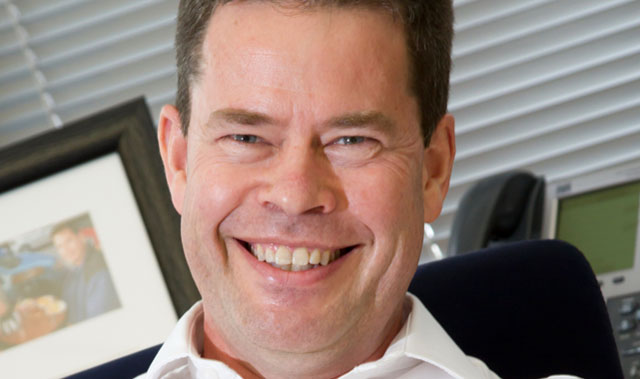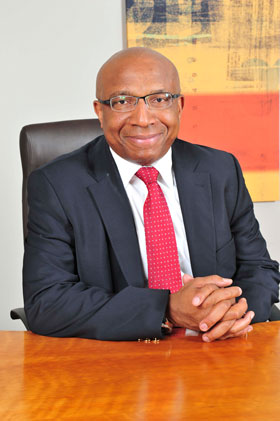
The ongoing decline in the number of fixed lines in service in South Africa, a trend that has been evident for more than a decade now, is a “big concern” for Telkom, but is the result of fixed-to-mobile substitution more than the cost of line rental.
That’s according to the group’s chief operating officer, Brian Armstrong, who says Telkom must reposition fixed-line telephony and broadband as premium services next to mobile. The company must also offer more value-added services to fixed-line consumers in an effort to stop and then reverse the slide in fixed lines, he says.
In its financial year ended 31 March 2014, Telkom revealed that the number of fixed lines in service had declined by nearly 5% to 3,6m. The fixed-line penetration rate fell to just 7%, from 7,3% previously.
“Clearly, this is a big concern of ours,” Armstrong says. “It is an important driver of volume in our business and we need to see what we can do to arrest and reverse that decline.”
But simply cutting line rental fees and other fixed-line charges may not achieve that goal.
“We need to get ourselves out of a discussion on price and much more towards value,” he says. “We want to increase the value we provide over those lines and to make sure it’s genuine value in the eyes of consumers.
“When you see [Telkom’s annual] tariff filing [with communications regulator Icasa], you will see our first moves in that direction, away from saying simply that we have a cost and that we have to cover that cost and the price is X and it will go up by X%/year.”
Armstrong says that a decade ago, fixed lines were seen as the ubiquitous product, while mobile was the “sexy and premium product”. Fixed services must now be marketed as the premium product, he says. “Let’s face it, if the call really matters you do it on a fixed line. And on data we really have to make the case — and our products have to justify us making the case — that fixed is the premium product. You’ll have 3G wherever you go, but when you want a really great experience it’s going to be a fixed service.”
Although there is a correlation between price and the number of fixed lines in service, there is no causal relationship, he says.
“We have done a lot of work on this. We believe – and you can have lots of debates about this until late in the night — that the primary driver of line reduction is fixed-to-mobile substitution, which is not primarily a price-related issue but rather a behaviour-related issue.
“What corroborates this is when we introduce specials that negate that price impact, it doesn’t change customer behaviour. There’s an overwhelming social trend to mobile from fixed and that’s because we haven’t succeeded in positioning fixed as a premium product.”

As Telkom rolls out faster digital subscriber line (DSL) connections to its customers, Armstrong says he is “excited” about the opportunity to grow the consumer broadband market. “As we go to next-generation DSL products, it will open a bigger addressable market.”
Also key to growing the market is providing value-added services on top of the company’s fixed lines. Offering streaming content over its network is crucial here, though Armstrong isn’t ready to talk yet about what Telkom intends doing in that space.
He says Telkom is alive to the fact that consumers are price sensitive and that price influences the size of the market. “We are quite aware of this price curve in terms of an addressable market.”
Should Telkom consider offering broadband to consumers without forcing them to buy a traditional voice service, too? This so-called “naked DSL” is something Internet service providers have been lobbying hard for in recent years. Armstrong says it’s difficult for Telkom to implement in practice because of historical legacies.
“We never had the opportunity to go through proper tariff rebalancing,” he says. “The issue for us is this: if we could get to a position where there is de facto tariff rebalancing, where we could either bring the cost base down or the average revenue per user up so we don’t have an access deficit, then the answer would be yes.”
Telkom was given a five-year monopoly between 1997 and 2002 — which was extended into a de facto monopoly until at least 2005 — to conduct a tariff rebalancing to do away with aggressive cost-subsidisation between business units. The company now claims it wasn’t able to complete this process for several reasons, among them the service obligations that came with its state-sanctioned period of market exclusivity. It says it still has a significant access line deficit, where it is not able to recover the cost of the average fixed line in service through basic line rental charges.
However, CEO Sipho Maseko says Telkom is considering changes to the way it packages its products. “Even with things like line rental, you will see less of those as a line item [on your bill],” Maseko says. “It will lean more onto the value side.” — © 2014 NewsCentral Media

